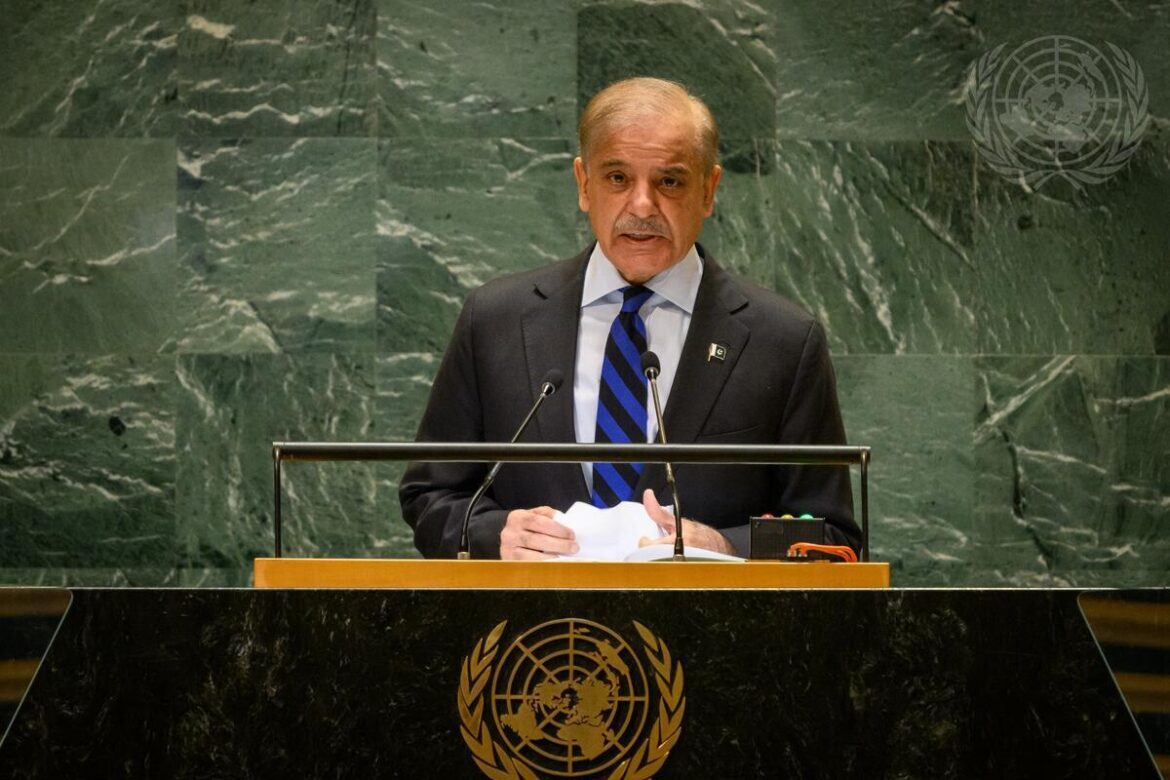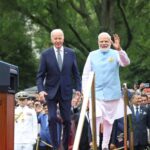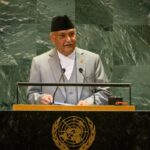Pakistan’s Prime Minister, Muhammad Sharif, asserted that similar to the people of Palestine, the people of Jammu and Kashmir have endured a century-long struggle for freedom and the right to self-determination.
According to a UN press statement, Sharif while addressing the 79th Session of the United Nations General Assembly on September 27, 2024, criticized India for stepping back from its commitments to implement relevant UN Security Council resolutions and, since August 5, 2019, for taking unilateral, illegal actions aimed at imposing what its leadership has ominously called a “final solution for Jammu and Kashmir.”
Sharif further accused India of carrying out “a classic settler-colonial project,” seizing land in Kashmir and settling non-Kashmiris in the occupied territory to turn the Muslim majority into a minority. While the Kashmiri people remain steadfast in rejecting a false Indian identity, India’s oppressive policies have ensured that the legacy of Burhan Wani continues to inspire the resistance of millions. “Inspired by the legitimacy of their epic struggle, they remain defiant,” he emphasized while asserting that Pakistan would respond decisively to any Indian aggression.
Regarding the Israel-Gaza conflict, the Prime Minister urged nations to work towards a two-state solution, calling for Palestine’s immediate admission as a full UN member. He argued that the failure to enforce UN resolutions has emboldened Israel, warning that its actions could potentially “drag the entire Middle East into a wider war.”
Sharif also recalled that Pakistan’s founder, Quaid-e-Azam Muhammad Ali Jinnah, declared in 1947 that Pakistan stands by the United Nations Charter and is committed to contributing to global peace and prosperity.
Pakistan’s Prime Minister, Sharif, addressed global challenges, expressing sorrow over the ongoing conflict in the Holy Land and the broader impact on humanity. He highlighted the 2022 floods that devastated Pakistan, causing $30 billion in damage, despite the country contributing less than 1 per cent of global carbon emissions. Sharif also noted the launch of the second phase of the China-Pakistan Economic Corridor, aimed at boosting investment in infrastructure and renewable energy.
Sharif emphasized Pakistan’s long battle against terrorism, which has cost the nation 80,000 lives and $150 billion. He warned of a resurgence of terrorism, particularly by Tehrik-e-Taliban Pakistan (TTP), and called for the normalization of Afghanistan’s situation while supporting the UN’s $3 billion humanitarian appeal.
He condemned the rise of Islamophobia, especially in India, where he accused the government of pursuing a “Hindu supremacist agenda” targeting 200 million Muslims. Despite these challenges, he encouraged resilience, emphasizing that the oppressed should not lose hope.






